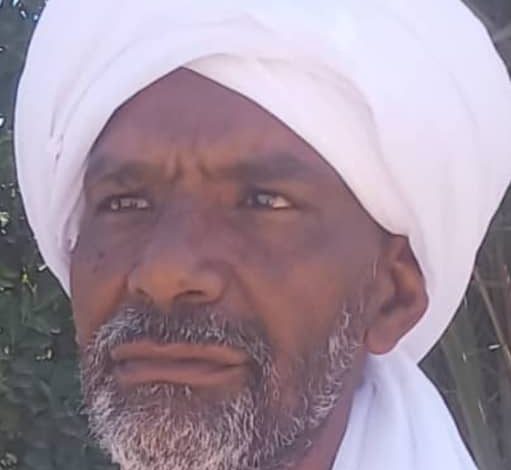Sudan Reconstruction Fund

By: Ibrahim Al-Tayeb Al-Jilani
(1)
Reconstruction represents a political, economic and social process aimed at preparing the conditions of post-war society to ensure the sustainability of economic peace, and social recovery, and the absence of a return to the war phase and what preceded it, through rebuilding vital and service structures, public institutions and housing, as well as enhancing the means and livelihood opportunities necessary for the affected communities.
The concept of reconstruction constitutes one of the elements of the state and society to reject war and armed conflict and the devastation and elemination of its causes. It is considered one of the most important means of building peace through the economic, political and cultural reconstruction of societies, which contributes to the comprehensive recovery of society, vital structures, service facilities and economic development in a way that distances them from a return to conflict and another armed conflict once again..
Sudan is one of the countries that has suffered from armed conflicts for long but intermittent periods. Once one conflict subsides, another emerges in a series that has exhausted the country and made it one of the countries on the African continent that suffer most from wars and armed conflict.
(2)
Conscious planning for the requirements of reconstruction remains a pivotal and foundational issue from which the reconstruction process begins, which addresses the roots of the conflict and its causes and addresses its conditions in order to reach projects and programs that contribute to rebuilding society and the state. The countries around us have many examples of reconstruction programs, some of which succeeded in achieving their goals and objectives, and some of which failed. ..
Successful reconstruction Experiences Rwanda as a model
On the African continent, Rwanda’s experience remains one of the successful experiences in reconstruction, as we find that it is one of the countries that needed a comprehensive reconstruction process and comprehensive reforms, as the civil war destroyed the country’s infrastructure and societal structures as a result of genocide. The Rwandan experience was distinguished in that it focused on the aftermath of the conflict and the civil war in it. On a large-scale, complex, comprehensive and multidimensional process to improve security conditions (restoring law and order), strengthen and enhance the political process (governance, modernization of the constitution, management, and division of wealth), rebuild the economy (re-stimulate and rehabilitate the economy and development) and social conditions (justice, reconciliation, and individual and social reconciliation). ,,
What distinguishes the Rwandan experience is that it combined the urgent efforts phase of the reconstruction process and the macroeconomic recovery phase, which had the effect of accelerating the exit from the negative effects that accelerate the failure of the reconstruction process.
(3)
All successful experiences indicate that combining the process of urgent reconstruction tasks and the process of economic, political, and societal recovery is one of the most successful experiences in the reconstruction process, and one of the successful models in this regard is the model (Germany in Europe after World War II – Rwanda and Liberia after the civil war in Africa), and we point out here The process of urgent reconstruction efforts is represented by rebuilding infrastructure, resettlement efforts for displaced persons and refugees, sustaining peace, providing basic services, integrating and demobilizing forces, disarmament, and societal integration of the demobilized, etc. As we point out, the process of economic and political recovery is represented by raising the overall indicators of economic performance, reducing external debt, achieving a high level of GDP growth, the economic stimulation program, economic investment, building strong political institutions and systems, establishing strict laws regarding conflict issues, law enforcement and legal justice, and working on state modernization programs. Governance systems,…etc
Accordingly, we know that the Rwandan and Liberian experiences achieved success and became a model on the African continent for comprehensive reform, sustainable peace, and political and economic recovery.
(4)
There are similarities between the Sudanese, Liberian and Rwandan cases, as the Sudanese case is similar to the Liberian case in that they both suffer from a series of successive conflicts separated by periods of relative calm that do not allow room for reconstruction. On the other hand, we find that the Sudanese case has similarities to the Rwandan experience with regard to conflicts with the ethnic and social nature, as happened in Darfur,
Therefore, what is best suited to the Sudanese situation with regard to reconstruction is to combine the process of (urgent reconstruction tasks) and (the process of economic, political and societal recovery), as it addresses the causes of war and conflict with short, medium and long-term plans, programs, and projects that are continued in succession in order to achieve sustainable development, for example. (The Rwandan case: the end of the armed conflict in 1994 – updating the constitution in 2003 – the end of the special trials in Rwanda in 2015) It is a long and extended series of political, legal and economic measures that Rwanda underwent, the positive results of which appeared later..
We hope that Sudan will be guided by the Liberian and Rwandan experience, emulating the experience and benefiting from its outcome and results in sustaining peace and comprehensive economic, political, social and cultural reform.
(5)
The Sudanese must begin developing the necessary plans and programs for the post-war reconstruction process in advance to complete preparations for the launch of (the Sudan Reconstruction Fund), which is preceded by the call for the Sudan Reconstruction Conference, which the international and humanitarian community, supporting countries, volunteer and humanitarian organizations, the United Nations and its international organizations are called for, as well as the countries of the regional ocean and the Arabian Gulf. The reconstruction process requires full readiness from all state agencies, organizations and national bodies to provide scientific and practical matrices that accelerate the process of comprehensive reform and reconstruction. This matter remains urgent until after the war, no less important than victory in the war, and Allah is the grantor of success..



